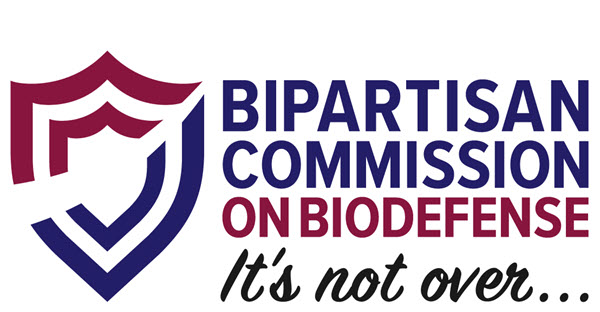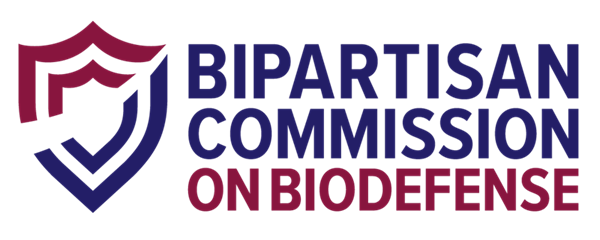Apollo Communications Kit
June 28, 2022 
FOR IMMEDIATE RELEASE
Contact: Steve Aaron
SRA Communications
(717) 554-8614
steve@SRACommunications.com
APOLLO COMMUNICATIONS KIT
Dear Friends:
The emergence of monkeypox and the depopulation of tens of millions of chickens and turkeys across a majority of states due to avian influenza highlight that COVID-19 is far from the only biological threat facing the United States. They are painful reminders of how disruptive and destructive biological events can be to our public health, economy, and national security. Furthermore, the ongoing Russian invasion of Ukraine is yet another stark reminder of how our adversaries may use biological weapons to attack humanity.
On behalf of the Bipartisan Commission on Biodefense, we are reaching out to you in hopes that you will assist us in sharing with your stakeholders details about the Commission’s Apollo Program for Biodefense. The Commission’s report, The Apollo Program for Biodefense: Winning the Race Against Biological Threats, provides a comprehensive outline of realistic and achievable recommendations that can bolster the Nation’s defense against biological threats. The report recalls the many times in our history when the U.S. has taken on grand technological challenges in times of great need, such as the Apollo Program to bring us to the Moon.
In April, the Commission issued The Athena Agenda: Advancing The Apollo Program for Biodefense, providing recommendations on how to implement the 15 technology priorities in the Apollo Program for Biodefense, identifying the US government organizations responsible for leadership and accountability, and the need for engagement in public-private partnerships.
That is why the Commission has launched a public awareness campaign that urges support for our ambitious Apollo Program for Biodefense. If authorized by the Administration and Congress, we can eliminate pandemics in ten years as well as dramatically reduce other biological threats.
This public awareness campaign includes a 30-second PSA, suggested social media content and other sharable materials, all housed at our website about the Apollo Program for Biodefense: TheNextApollo.org. We have created this ‘Friends of the Commission’ digital toolkit so that you might help us to share this message with stakeholders that are important to you. Please consider forwarding this message to your communications manager for their awareness. This content can be shared in any number of ways, such as through your social media platforms, email blasts to your colleagues and partners, in your newsletters and on your websites. All of the materials can easily be downloaded here.
About the Bipartisan Commission on Biodefense
The Bipartisan Commission on Biodefense was established in 2014 to conduct a comprehensive assessment of the state of U.S. biodefense efforts, and to issue recommendations to foster change. The Commission’s 2015 report, A National Blueprint for Biodefense: Leadership and Major Reform Needed to Optimize Efforts, identified capability gaps and recommended changes to U.S. policy and law to strengthen national biodefense while optimizing resource investments. In its 2021 report, Biodefense in Crisis: Immediate Action Needed to Address National Vulnerabilities, the Commission described the extent to which the federal government had implemented the Commission’s recommendations. Other Commission publications have addressed critical needs for agrodefense; biodefense budgeting; diagnostics; an Apollo Program for Biodefense; an Athena Agenda for implementing the Apollo Program; national biodetection; biodefense of critical infrastructure; and State, Local, Tribal and Territorial response capabilities. In September 2018, the White House released the National Biodefense Strategy, a top recommendation from the Blueprint and in September 2021 released the American Pandemic Preparedness plan, based on the Apollo Program report. The Commission continues to address biodefense challenges and to urge reform. Former Senator Joe Lieberman and former Governor Tom Ridge co-chair the Commission. Hudson Institute is the Commission’s fiscal sponsor.

